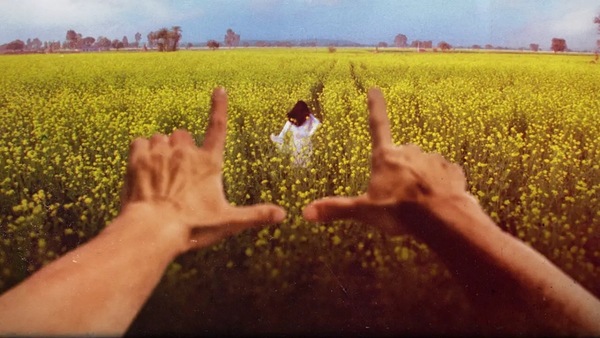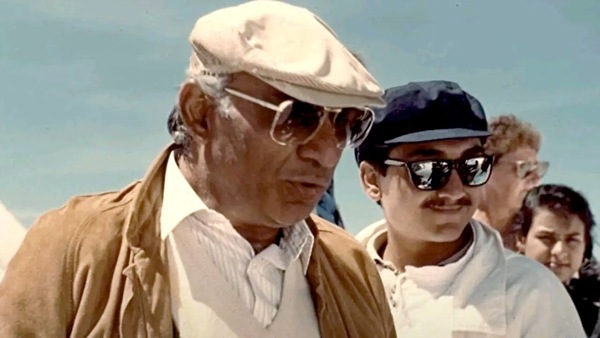Newsletter: Like Yash Chopra's Films, The Romantics Is Most Effective When It Talks Of Love
This is #CriticalMargin, where Ishita Sengupta gets contemplative about new films and shows. Today: The Romantics.

Last Updated: 12.26 PM, Feb 16, 2023
This column was originally published as part of our newsletter The Daily Show on February 16, 2023. Subscribe here. (We're awesome about not spamming your inbox!)
***
BACK IN 2020, Indian-American filmmaker Smriti Mundhra took an Indian reality and packaged it as a fantasy for the West. She framed a docu-series on the concept of arranged marriage and dislodged all the underlying but defining factors — like caste, class, religion — from it. The Netflix show, Indian Matchmaking was designed as a concept unique to India without acknowledging the social disparity that contributes to this uniqueness. Two seasons later, and another on the way, the problem with the show can be articulated like this: Mundhra was celebrating a concept that demanded introspection.
In more ways than one, her recent work for the streaming giant repeats the cultural blindspots. But the shift in the premise ensures the problems, while present, are not as thorny. The Romantics, which she has directed, co-written with Michael T Vollmann, and features as one of the executive producers [on], is a four-part documentary on the celebrated Indian filmmaker Yash Chopra. There is much to explore. The late director was not just prolific — his career spanning across five decades; he was a visionary. It will not be an overreach to state that the crest and troughs of his career, as a director and producer, shaped the contours of Hindi cinema. The reason for this being, his family helms one of India’s largest homegrown studios.
But even without that, Chopra introduced a visual grammar to Hindi films, lending them a trademark aesthetic. The Romantics tracks his legacy right from his first film Dhool Ka Phool (1959) to his last Jab Tak Hai Jaan (2012; he passed away on October 21, 2012 before the release of the film). Interspersed with this are quotes from the host of collaborators and liberal inclusion of archival footage from his interviews with filmmaker Karan Johar and actor Shah Rukh Khan. Actors spread across decades like Khan, Amitabh Bachchan, Aamir and Salman Khan, Juhi Chawla, Ranbir Kapoor, Kajol, Anushka Sharma, Ranveer Singh (Rishi Kapoor features in what is presumably his last interview before passing away in 2020) talk about Yash Chopra. So do writers he worked with (Salim Khan) and those who are associated with his production house — Maneesh Sharma and Jaideep Sahni. The narrative is linear and unfolds with the express purpose of celebrating his contribution to the business of movie making in India.
The visual interface is deliberately frothy. The first episode, titled The Boy from Jalandhar, traces his meteoric rise with some admission of failure. The route is chronological. It halts at Chopra starting out as a director under the wings of his brother, fellow director BR Chopra. His marriage with Pamela Chopra is alluded to (she makes a rare and rewarding presence), his starting out on his own is documented, and his negotiation with the changing times is addressed.
It is the second episode that holds the clincher of The Romantics. The notoriously elusive Aditya Chopra, Yash Chopra’s elder son and the head of Yash Raj Productions, makes an appearance. That his brother Uday Chopra serves as one of the executive producers on the project might have contributed to pulling off the feat but even as a concept, it lends an exclusiveness to the docu-series. It also comes to define the self-congratulatory tone of Romantics that unravels as a reiteration of Yash Raj’s legacy, pondering over the origin of the studio and echoing the brilliance of Aditya Chopra for anticipating shifts in the market before others. The last two episodes are an extension of this with the third countering the topic of nepotism with a rehashed argument (Aditya Chopra states that if nepotism was a reality, his brother would have been a star — moments after frankly admitting that the studio was a “gift” from his father).

Much like Indian Matchmaking, even in The Romantics, Mundhra’s gaze remains strictly surface-level without any inclination for deeper examination (Canadian Youtuber Lilly Singh features in it to talk about the way she was influenced by films produced by Yash Raj — establishing Mundhra’s continued pandering to the white gaze). For instance, the iron fist policies of the production house which includes binding newcomers in restrictive contracts are never mentioned (Shraddha Kapoor had famously flouted it after her 2011 film Luv Ka The End and hasn’t worked with Yash Raj since). Neither is the fact that the magnitude of Yash Raj Studio has made it into a gatekeeper of sorts despite multiple claims in the documentary that such is not the case. There is also a curious absence of actors like Parineeti Chopra and Vaani Kapoor (both started their careers with YRF) and filmmakers like Kabir Khan, Ali Abbas Zafar, Shimit Amin, Habib Faisal. Even more strange is the cherry picking of films from the production house with a complete omission of titles in the last decade (also its most trying phase).
The inclusion of Uday Chopra then imbues The Romantics with the personality of a vanity project that exists to retell the story of a man and his prodigal son. If this doesn’t threaten to entirely undo the merit of its existence it is because the reward of watching it hides in plain sight. It comprises witnessing behind the scenes footage from Dilwale Dulhania Le Jayenge (Aditya’s directorial debut in 1995) where a very young Johar brushes Kajol’s hair. It lies in the moment Shah Rukh Khan recounts that the specific idea of stammering the name Kiran in Darr (1993) was Aditya’s idea given that he has the same condition. Or when Abhishek Bachchan tells stories about childhood dance competitions, where to everyone’s surprise, Hrithik Roshan would be continuously beaten by Aditya.
It is these moments that prevent The Romantics from unfurling as a familiar story (the first episode does a competent job in placing Yash Chopra’s filmography against the political landscape of India even when Javed Akhtar, the writer in many of his films, remains absent). Shot over three years, the docu-series gains everything from the presence of Aditya. If nothing else, it brings us closer to the mind of one of the most influential filmmakers of our times, cutting past his obstinate resistance. The access, by virtue of being so rare, makes The Romantics consistently watchable (almost tellingly he wears a white t-shirt with a hoodie, like he is one heartbeat away from covering his face again).
As the outing progresses, he talks about his apprenticeship with his father in films like Chandni (1989) and Lamhe (1991). His fierce self-belief to tell a love story where rebellion is tempered with the need for parental acceptance. He even briefly talks about his sole misfire as a director, Befikre (2016), admitting that it stings him a little. But the myth of Aditya Chopra is really confirmed with rare anecdotes like the time Shah Rukh, hyped to do more action films, was told by a young boy that his eyes have something that should not be wasted on action. Or when Sooraj Barjatya recalls a fateful phone call with Aditya after a disastrous screening of Hum Aapke Hain Koun..! (1994) that altered the fate of the film. Granted these are nothing out of the ordinary and had Aditya Chopra been more social, we would have read about them sooner. But the director’s hitherto reclusiveness counts for The Romantics’ biggest attraction and in some capacity, its triumph.
Having said that, the documentary, much like a quintessential Yash Chopra film, is most effective when it talks about love. Uday Chopra recounts his sibling-like relationship with Yash Chopra. Pamela Chopra describes how Yash Chopra’s films became softer after their marriage, with a changed depiction of female characters. Pictures from their wedding find their way into the docuseries. Aditya Chopra in a sentimental swerve declares that even if the studio had not been successful, the fact that it bears the name of his father makes it all worthwhile. In that sense, The Romantics lives up to its title. It is a portrait of a man where members and friends gather to restate the romance of family. Except this time, we get a front-row seat to it.
